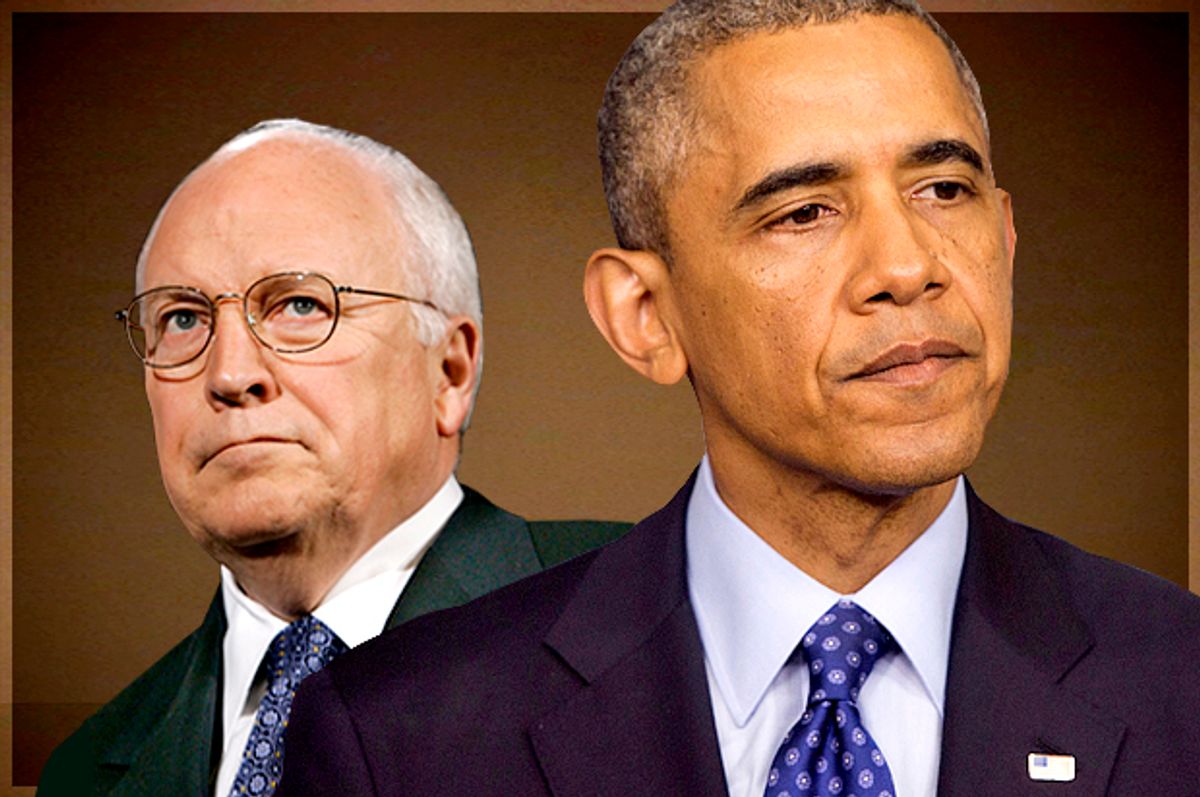Back in 2006, when he aspired to run for President, Senator Mark Warner (D- Va.) made a speech in Las Vegas claiming that Iran was the biggest WMD threat in the world. When asked to substantiate that claim afterwards, Warner pointed to three things -- Mahmoud Amedinejad's unpredictability, Iran's hegemonic aspirations in the region, and its support for terrorism -- to prove the seriousness of Iran as such a threat.
I was present for that speech, and in a session with bloggers afterwards, I asked: Which of those was a WMD threat? A misreported version of that exchange, one that missed Warner's earnest assurances after the event that when he's wrong, he admits it, plays a role in Matt Bai's explanation for why Warner never ran for President.
Now, nine years later, Warner remains one of just nine Democratic Senators who has not yet come out in support of the Iran nuclear deal, even as Barbara Mikulski came out as the 34th Senator to support the deal on Wednesday, ensuring Democrats could sustain a veto and the deal will survive.
Whatever Warner ultimately decides on the Iran deal, his confusion between Iran, the nuclear threat, and Iran, the country that wants to expand its authority in a region currently dominated by Saudi Arabia, was not -- and still is not -- unusual.
UPDATE: After the publication of this article on Thursday, Warner became the 36th Democrat to support the deal.
For example: Dick Cheney, in one of what will be a flood of speeches (and book promotional events) attacking President Obama, recently claimed, "The only way to interpret [the Iran deal] and what [Obama's] motives were was he really wanted to boost Iran's position in that part of the world and make them the dominant force at the expense of our allies."
In reality, many of the people opposed to this deal are -- when you examine their statements -- actually opposed to the possibility that the U.S. might not unquestioningly do the bidding of the Saudis and Israelis going forward.
Yet, in the wake of signing the agreement, the Administration has gone so far to reassure allies allegedly concerned about Iran's nuclear program that they will continue to champion those allies' aspirations -- namely, to extend their own power in the Middle East -- that it has gotten dragged even further into ill-considered militarism, most notably in Syria and Yemen.
In Syria, the U.S. inserted a small group of DOD-trained fighters who will likely serve to do no more than drag the country further into the morass. Retired General David Petraeus has even gone so far as to suggest allying with al Qaeda to combat ISIS. In addition, in exchange for stationing drone at a Turkish air force base, the U.S. is ignoring Turkey's renewed assault on Kurds.
In Yemen, the U.S. is providing arms and intelligence as an ill-considered Saudi assault creates one of the most dire humanitarian disasters in the region. There, too, al Qaeda's affiliate, AQAP, stands to benefit from our indirect support. It's as if, to placate allies claiming to be concerned that the U.S. has made a nuclear deal with Iran, the U.S. has decided to double down on stupid militarism in the region -- stupid militarism that only feeds the terrorism that is supposed to be the biggest threat to the U.S.
John Kerry suggested the U.S. was redoubling its support -- not for al Qaeda and its affiliates, but for our allies -- in a speech given Wednesday.
"[I]f we trusted Iran or thought that it was about to become more moderate, this agreement would be less necessary than it is. But we don’t," the Secretary of State said in listing expanding military support for both Israel and our Gulf allies. "That’s also why we are working so hard and so proactively to protect our interests and those of our allies."
At a moment when President Obama has secured a deal that might shift the course of events in a region that has grown increasingly destabilized since the Iraq invasion, the Administration has instead retreated to a policy of supporting the same disastrous policies that have destabilized it (which are now creating a refugee crisis in Europe).
This, even at a moment when that most pallid purveyor of conventional wisdom, Tom Friedman, has admitted what few in Washington will: that the Saudis, not Iran, are the most destabilizing force in the region with their support for fundamentalist Islam.
The Iran deal is important -- both because it will forestall any Iranian aspirations for nuclear weapons and because it will reintegrate Iran, a problematic and aspirational but nevertheless important player in the Middle East, back into the international community. But doubling down on the idiocy of our allies in response will squander much of benefit of the deal.



Shares